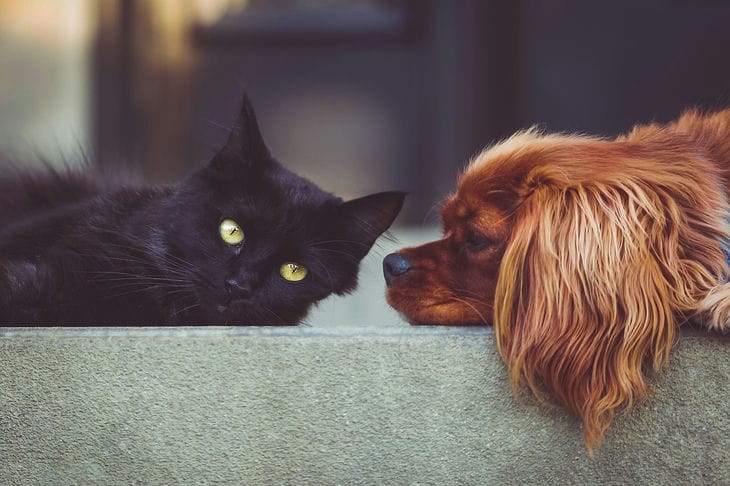Houseplants decorate our home and create a cozy atmosphere.
However, some of them can be dangerous for pets, especially cats and dogs.
Let's take a look at the most common houseplants that are best kept out of reach of your four-legged friends.
First of all, it is worth mentioning lilies. These beautiful flowers with large petals look very attractive to cats and dogs.
Unfortunately, all parts of the lily are poisonous to animals and can cause vomiting, salivation, low blood pressure, and even kidney failure. Keep lilies away from your pets!

Another common and beautiful, but poisonous plant is dieffenbachia.
This large shrub with brightly variegated leaves can cause irritation and swelling of the mucous membranes of the mouth, throat and stomach in cats and dogs.
If the leaves or stems of dieffenbachia are swallowed, the animal may experience vomiting, salivation, and difficulty breathing.
Be careful with violets too. These lovely flowers contain substances that irritate the gastrointestinal tract of cats and dogs.
First aid for poisoning is to induce vomiting and give activated charcoal to absorb toxins.
Some creeping plants, such as ivy, can also cause oral irritation and vomiting in pets.
It is better not to take risks and keep such plants in places inaccessible to pets.
Unfortunately, the list of indoor plants that are dangerous for pets is not limited to those listed above.
Many popular indoor flowers can cause toxic effects:
- Azaleas and rhododendrons contain substances that irritate the mucous membranes and gastrointestinal tract.
- Cyclamen is a poisonous plant that can cause severe vomiting and diarrhea.
- The sharp spines of cacti and other succulents can injure the mucous membrane of the mouth of pets.
- Symptoms of fern poisoning include vomiting, lethargy, and salivation.
- Euphorbia contains poisonous juice - if eaten, it can cause swelling of the tongue and larynx.
To avoid tragedy, make sure your pets do not have access to poisonous houseplants.
Place flower beds and flower pots in out-of-reach places, on windowsills and shelves.
If you notice signs of poisoning, contact your veterinarian immediately! Your pet's health is paramount.
Previously, we wrote about how to understand that a parrot is sick, and listed the obvious symptoms.








